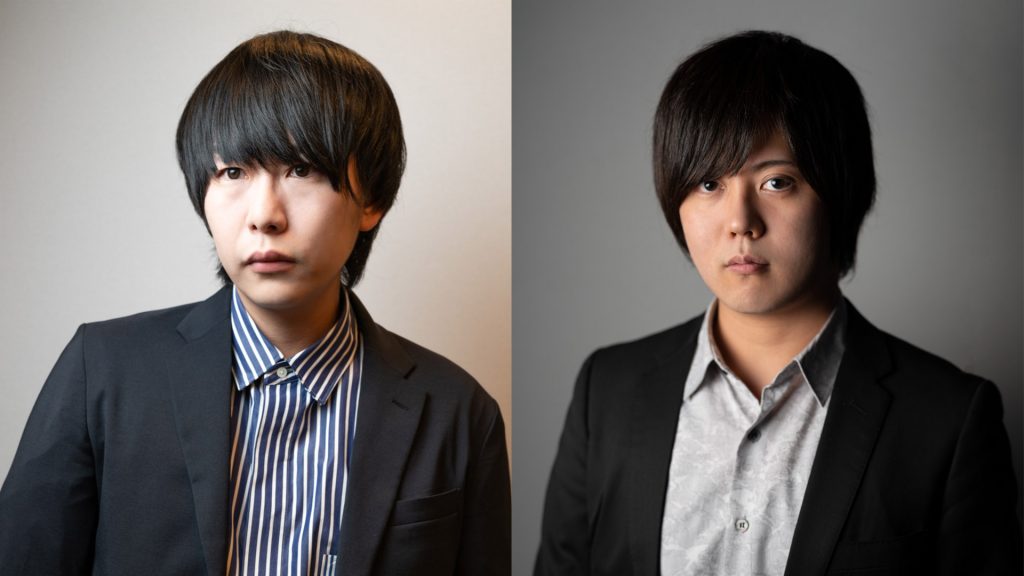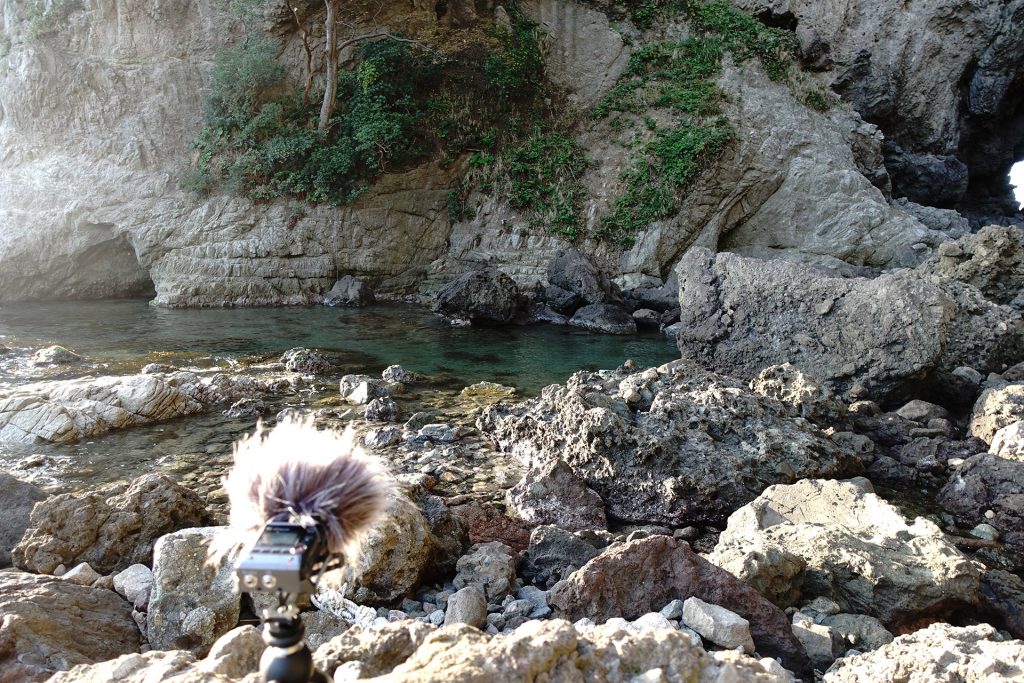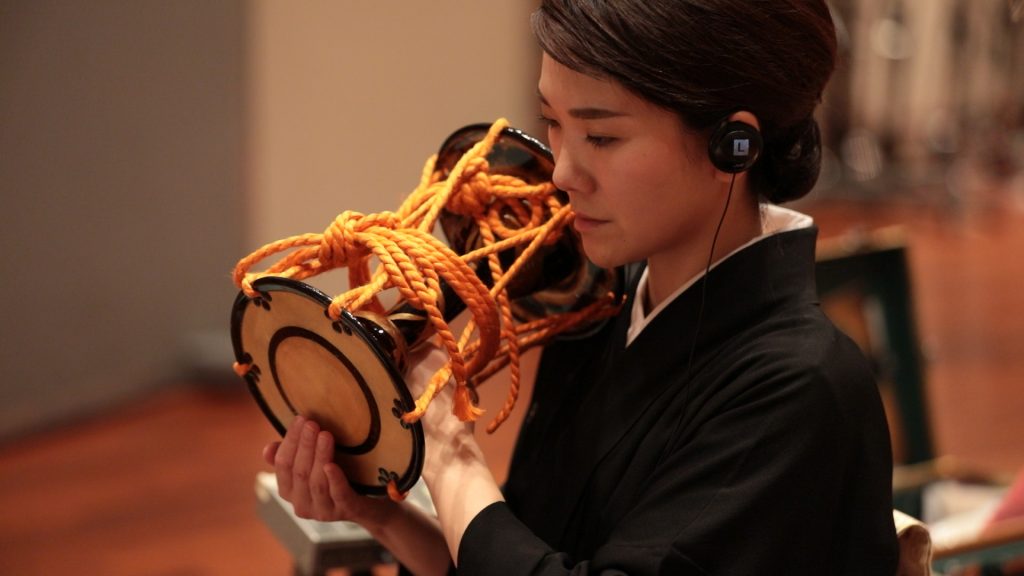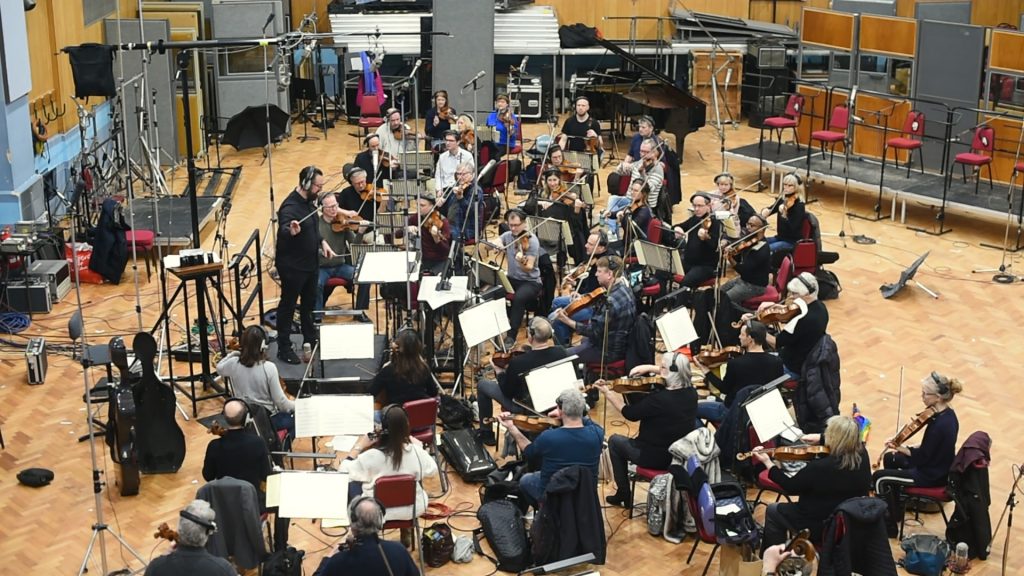
Monster Hunter Rise Interview with the Sound Team
Mar 04, 2021 // Shibata
Hello everyone! Shibata here, reporting from the Monster Hunter Rise dev floor! For our third round of Monster Hunter Rise interviews, I’ll be talking to the sound team.
Meet Kosuke Tanaka, the Sound Director, and Satoshi Hori, the Lead Composer!
Shibata: First, would you mind introducing yourselves?
Kosuke Tanaka: I’m Kosuke Tanaka, the Sound Director.
I’m in charge of designing and overseeing the general sound concepts, as well as schedule management.
I do some actual production work as well and, to give a few simple examples, I created the sound effects for the Wirebug and the Title Screen.
Satoshi Hori: I’m Satoshi Hori, the Lead Composer. I’m in charge of supervising all BGM-related elements of Monster Hunter Rise, creating musical concepts for each monster (deciding the sense of scale of each piece, and which instruments to use, etc.), and directing the other composers.
Shibata: What kind of image and goals did you have for the sound in Monster Hunter Rise?
Tanaka: The general theme for the sound was “catchy and easy to understand.”
If the sound design for Monster Hunter: World and Iceborne could be described as “Art with delicate layers,” then I’d say the sound design for Monster Hunter Rise is “to convey everything with one concentrated effect.” That’s what we were going for.
Also, we wanted to treat past titles in the Monster Hunter series with respect, so although there are a lot of new sound effects in this game, we’re intentionally using some nostalgic sounds as well.
Shibata: We’ve already shown some live gameplay footage of the Shrine Ruins at TGS, and the environmental sound effects, like the songs of birds etc., change very realistically based on where the hunter is going, correct?
Tanaka: Yes, in order to make the new stages, like the Shrine Ruins, feel as realistic as possible, we went out and did field recordings in a variety of places. The songs of birds, the chirping of cicadas, ambient noise in caves, the bells of a temple, and lots and lots of other sounds. We’ve put a lot of “real sounds” into the game like that. As a result, we’ve managed to create a soundscape that feels like a living, breathing ecology, which adds to the realism, I think.

Shibata: The BGM in the trailers we’ve seen so far also uses a variety of instruments. How did you record all of this?
Hori: Oh yeah, we recorded a whole bunch of traditional Japanese instruments: shakuhachi, shamisen, shinobue, and koto of course, but also biwa, hichiriki, ryūteki, taiko, atarigane, Kagura suzu, and horagai. There’s even some very unusual instruments in there that you normally wouldn’t hear outside of special occasions.
On top of these Japanese instruments, we also recorded live orchestral performances in order to convey the strength of the monsters and the scale of the world in a way that you would expect from a Monster Hunter game. The orchestral performances were carried out in Japan, LA, and London, depending on where the music was going to be used and which monster theme we were recording. For particularly fearsome monsters and music that required a large sense of scale, we mainly used Abbey Road in London. Apart from the huge collection of instruments, we also recorded several songs in a variety of genres.


Shibata: Yes, I noticed the singing in “Proof of a Hero: Rise Version”! Can you tell us a bit more about that?
Hori: We used a chorus of 24 people for “Proof of a Hero: Rise Version.”
I think we’ve managed to create a quite unique version of this fan favorite by combining the usual orchestra with traditional Japanese instruments, and vocal music.
For this game, we wanted “Proof of a Hero” to symbolize the people of Kamura Village fighting against the onslaught of the Rampage, encouraging themselves and the players through song, in order to protect their homes.
There are parts in this piece where the themes of Kamura Village and the Rampage are both played simultaneously as well, so keep your ears open for that as well!
Shibata: You mentioned monster themes; have the monster themes been remade for Monster Hunter Rise?
Hori: We haven’t made any huge changes to the original music. We made sure to pay the proper amount of respect to the Monster Hunter series by preserving the quality of the original pieces, while also adding a catchy twist to them to better fit the themes of this game. Mr. Ichinose wanted to have vocals for every piece, so it’s not just the completely new monster themes that will have vocal performances in them, but the arrangements of existing themes as well.
Shibata: In Monster Hunter Rise, the hunter has actual lines of dialogue. How many voice options will there be in the game?
Tanaka: If you want to know the exact number, you’ll have to play the game, but there are enough choices for you to be indecisive over.
As you said, the hunters don’t just grunt anymore, they have actual dialogue this time, and each voice type represents a certain “personality.” Our script writer had to come up with different settings and a whole bunch of lines for each voice type, but we think he did an outstanding job. It really speaks to the imagination: “A hunter with a voice like this probably lives their hunting life in such and such way,” you know? I really think players will enjoy mulling over which voice they’re going to pick.
Shibata: And you can even pick between Japanese, English, or Monster Hunter language! I look forward to spending hours on the character creation screen!
Tanaka: Of course, if you only want grunts and efforts like in the past titles, there’s an option for that, and you can even adjust the frequency of spoken dialogue, so you can enjoy the VO in any way you want!
Shibata: Why did you make the decision to have the hunters talk this time?
Tanaka: We wanted to use the hunter’s voice as a communication tool between players.
For most of the past entries in the series, players used to gather together with their portable consoles and just talk to each other in real life, and we wanted to recreate this sense of excitement for people living in an environment where it is not so easy to get a group of players together in a physical space. So we figured that maybe we could pull this off by borrowing the hunter’s voice.
Using in-game player voices also removes the necessity for voice chat functionality or companion apps, which significantly lowers the hurdle for communication.
Shibata: Considering that players from all over the world will be able to play together online, is it possible for players to communicate with each other while maintaining their separate voice settings? (i.e. Will it be possible to communicate with players who have different settings from yourself?)
Tanaka: Each player will hear the voice language that they selected in the options.
The dialogue spoken by other players will play back in the voice language you selected, so there should not be any trouble communicating. We hope everyone will use this VO to make friends with people from all over the world.
Shibata: Not only will you be able to play with hunters across the globe, you’ll even be able to talk to each other in languages you understand!
Tanaka: You can also choose whether you want other players’ voices turned on or off!
Closing remarks from me:
Thank you, Mr. Tanaka and Mr. Hori! As you can see, we’re paying plenty of respect to the Monster Hunter series’ legacy, while also making sure Monster Hunter Rise is its own unique entry in the franchise, so we hope you look forward to experiencing the impactful soundscape for yourself. The fact that the hunters have dialogue has already got lots of people talking, so in that sense we’ve already managed to get players excited!
Next time, I’ll be talking to Inouchi, the designer of the monster icons and other illustrations!
-
Brands: Monster Hunter
-

Loading...
Platforms:
